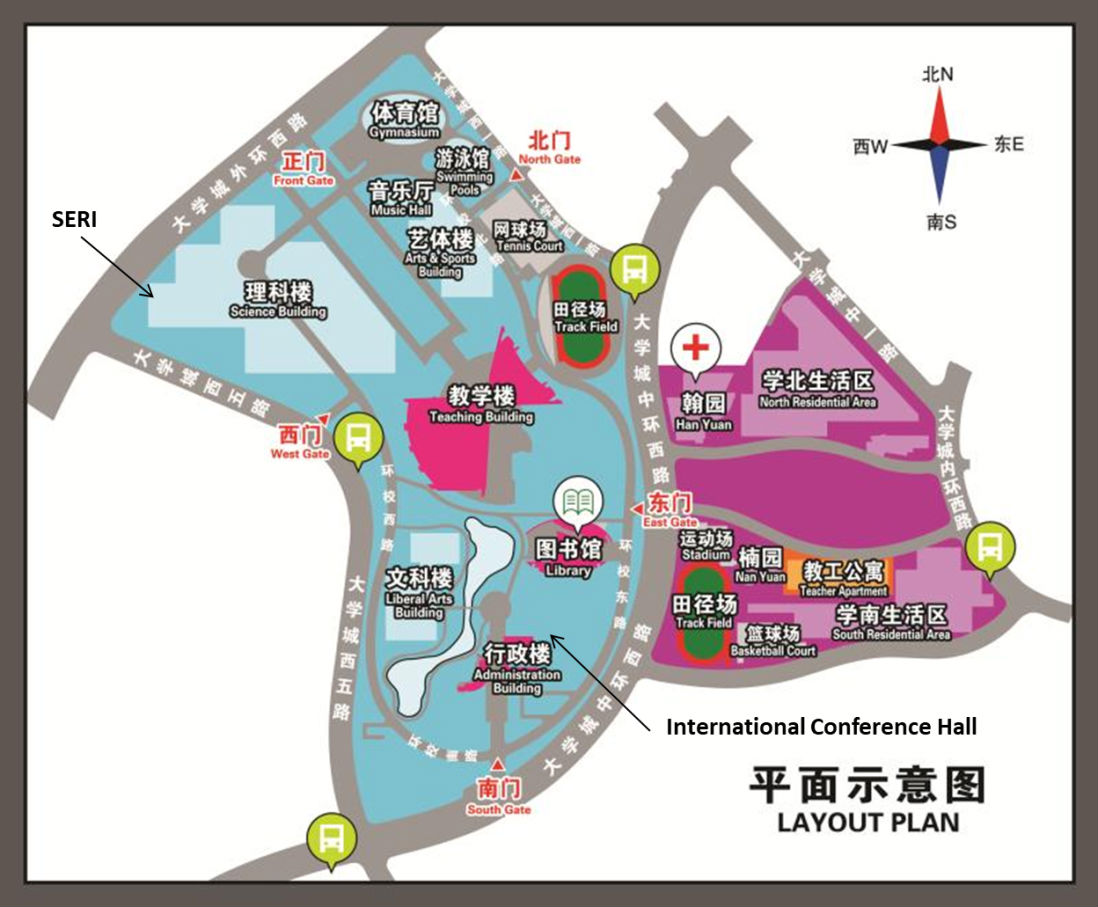Chemical Exposure and Environmental Risk Workshop
WELCOME
On behalf of the organising committee for the Chemical Exposure and Environmental Risk Workshop, a warm welcome to Guangzhou, China. A special welcome to our colleagues from overseas, who have travelled long distances to make this event a success.
Chemicals are widely used in agriculture and industry as well as in our daily lives. They can be released to the environment during their production, application and waste disposal processes, causing potential risks to environmental organisms and human health. To address the environmental contamination issues of these chemicals, it is essential to understand the exposure of chemicals in the environment and their ecological and human effects. We need to strengthen our research in environmental exposure assessment, environmental processes and pollution control technologies of chemicals with the aim to reduce their risks posed to the ecosystem and human health.
Our scope of this workshop includes the chemical exposure, ecological and health risk assessment, and environmental processes of chemicals, as well as some emerging issues such as endocrine disruption, antimicrobial resistance and nanomaterials.
We invite people in this research field from overseas and within China to discuss the research status and future directions of chemical exposure and environmental risks.
We sincerely hope that you will enjoy the stimulating scientific deliberations, social networking and the experience of our Cantonese culture. You are also welcome to visit our campus and SERI laboratories during your stay.
Guang-Guo Ying
Workshop Convener
@SERI China
研讨会日程
Monday 19 November | |
14:30 – 17:00 | Registration |
17:00 – 18:00 | Welcome Reception |
18:30 – 21:00 | Welcome Dinner |
Tuesday 20 November: Morning Session | ||
8:30 – 8:50 | Welcome - Housekeeping | |
8:50 – 9:20 | Jenny Stauber | Assessing the risk of contaminants in aquatic systems: New tools to answer new questions |
9:20 – 9:50 | Paul van den Brink | Assessing and extrapolating of effects of (multiple) stressors at different levels of biological organisation |
9:50 – 10:20 | Daniel Schlenk | Macroplastic leachates: Evaluation of estrogenic compounds in water and simulated gut fluid of birds and fish |
10:20 – 10:30 | Morning Tea/Coffee | |
10:30 – 11:00 | Alistair Boxall | Characterising chemical exposure in urban environments |
11:00 – 11:30 | Choon Nam Ong | Nanomaterials in the environment and their health concern |
11:30 – 12:00 | Changer Chen | Passive sampling of pharmaceuticals and personal care products |
12:00 – 1:30 | Lunch | |
Tuesday 20 November: Afternoon Session | ||
14:00 – 14:30 | Zongwei Cai | Mass spectrometry-based metabolomics and imaging analysis for research of environmental toxicity |
14:30 – 15:00 | Xiaowei Zhang | Application of ecogenomics for predicting anthropogenic pollution in aquatic ecosystems |
15:00 – 15:30 | Lei Wang | Exposure assessment of typical microplastics to children |
15:30 – 15:40 | Afternoon Tea/Coffee | |
15:40 – 15:10 | Xiangdong Li | Differential toxicities and contributing chemicals in urban PM2.5 of China |
15:10 – 16:20 | Wenjing Deng | Organophosphate flame retardants and bisphenol-A in indoor dust, PM2.5 and children's urine in Hong Kong: Has the burden been underestimated? |
16:20 – 16:50 | Maosheng Yao | Antibiotic resistance genes in air |
16:50 – 17:20 | Yong Feng | Activation of persulfates by common transition metals: Stoichiometric efficiency and applications |
18:30 – 21:00 | Dinner | |
Wednesday 21 November: Morning Session | ||
8:30 – 9:00 | Zijian Wang | Hazard assessment of chemicals based on tiered approach |
9:00 – 9:30 | Jianying Hu | Impacts of pollutants on female reproductive health |
9:30 – 10:00 | Weiping Liu | Environmental processes and health risks of chiral contaminants |
10:00 – 10:10 | Morning Tea/Coffee | |
10:10 – 10:40 | Zhimin Qiang | Behavior, removal and risks of trace contaminants in Chinese WWTPs |
10:40 – 11:10 | Chun Hu | Innovation and application of water treatment technology based Interface microprocess |
11:10 – 11:40 | Zhang Lin | Recycling of Cr(VI) from chromate sludge via crystal growth manipulation |
12:00 – 1:30 | Lunch | |
Wednesday 21 November: Afternoon Session | ||
Discussion on Discipline Building and School Proposal (only invited people) | ||
14:00 – 14:30 | Guang-Guo Ying | Introduction |
14:30 – 16:00 | Panel | Discussion |
16:00 – 17:00 | Panel | Suggestion and Proposal |
18:30 – 21:00 | Dinner | |
List of Workshop Speakers
Jenny Stauber, CSIRO Land and Water Division, Australia
Assessing the risk of contaminants in aquatic systems: New tools to answer new questions
Paul van den Brink, Wageningen University & Research, Netherland
Assessing and extrapolating of effects of (multiple) stressors at different levels of biological organisation
Daniel Schlenk, University of California, Riverside
Macroplastic leachates: Evaluation of estrogenic compounds in water and simulated gut fluid of birds and fish
Alistair Boxall, University of York, UK
Characterising chemical exposure in urban environments
Choon Nam Ong (王俊南), National University of Singapore
Nanomaterials in the environment and their health concern
Changer Chen (陈长二), South China Normal University
Passive sampling of pharmaceuticals and personal care products
Zongwei Cai (蔡宗苇), The Hong Kong Baptist University
Mass spectrometry-based metabolomics and imaging analysis for research of environmental toxicity
Xiaowei Zhang (张效伟), Nanjing University
Application of ecogenomics for predicting anthropogenic pollution in aquatic ecosystems
Lei Wang (汪磊), Nankai University
Exposure assessment of typical microplastics to children
Xiangdong Li (李向东), The Hong Kong Polytechnic University
Differential toxicities and contributing chemicals in urban PM2.5 of China
Wenjing Deng (邓文靖), The Hong Kong Education University
Organophosphate flame retardants and bisphenol-A in indoor dust, PM2.5 and children's urine in Hong Kong: Has the burden been underestimated?
Maosheng Yao (要茂盛), Peking University
Antibiotic resistance genes in air
Yong Feng (冯勇), The Hong Kong University
Activation of persulfates by common transition metals: Stoichiometric efficiency and applications
Zijian Wang (王子健), Research Centre for Eco-environmental Science, Chinese Academy of Sciences
Hazard assessment of chemicals based on tiered approach
Jianying Hu (胡建英), Peking University
Impacts of pollutants on female reproductive health
Weiping Liu (刘维屏), Zhejiang University
Environmental processes and health risks of chiral contaminants
Zhimin Qiang (强志民), Research Centre for Eco-environmental Science, Chinese Academy of Sciences
Behavior, removal and risks of trace contaminants in Chinese WWTPs
Chun Hu (胡春), Guangzhou University
Innovation and Application of Water Treatment Technology based Interface Microprocess
Zhang Lin (林璋), South China University of Technology
Recycling of Cr(VI) from chromate sludge via crystal growth manipulation
Keynote Speaker Biography
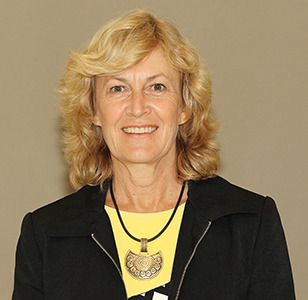 Dr Jenny Stauber is Chief Research Scientist and formerly Deputy Chief of the CSIRO Division of Land and Water, based in Sydney. She has over 35 years’research experience in the fields of aquatic ecotoxicology and human toxicology, and has written over 300 scientific and technical publications relating to the bioavailability and toxicity of contaminants in aquatic systems. Jenny has chaired and served on several World Health Organisation review boards, together with the NSW EPA Board and a large number of advisory panels to the Australian government on areas as diverse as ecotoxicology, contaminants, uranium mining, hazardous waste, acid sulphate soils, chemicals risk assessment and water quality guidelines. In 2014, Jenny was appointed to the Australian Government's Independent Expert Scientific Committee on Coal Seam Gas and Large Coal Mining Development. In 2015 Jenny was elected as a Fellow of the Australian Academy of Technological Sciences and Engineering (ATSE) and as a SETAC Fellow in 2016. She is currently a Visiting Professor at the Environmental Research Institute (SERI), South China Normal University.
Dr Jenny Stauber is Chief Research Scientist and formerly Deputy Chief of the CSIRO Division of Land and Water, based in Sydney. She has over 35 years’research experience in the fields of aquatic ecotoxicology and human toxicology, and has written over 300 scientific and technical publications relating to the bioavailability and toxicity of contaminants in aquatic systems. Jenny has chaired and served on several World Health Organisation review boards, together with the NSW EPA Board and a large number of advisory panels to the Australian government on areas as diverse as ecotoxicology, contaminants, uranium mining, hazardous waste, acid sulphate soils, chemicals risk assessment and water quality guidelines. In 2014, Jenny was appointed to the Australian Government's Independent Expert Scientific Committee on Coal Seam Gas and Large Coal Mining Development. In 2015 Jenny was elected as a Fellow of the Australian Academy of Technological Sciences and Engineering (ATSE) and as a SETAC Fellow in 2016. She is currently a Visiting Professor at the Environmental Research Institute (SERI), South China Normal University.
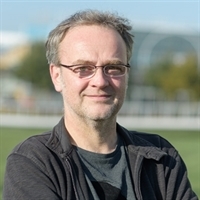 Dr Paul J. Van den Brink is a professor at the Aquatic Ecology and Water Quality Management Group of Wageningen University and a senior scientist at the research institute Wageningen Environmental Research. For both affiliations, he is involved in supervising and executing international projects on assessing the ecological effects of contaminants like pesticides, veterinary medicines and personal and home care products as well as those of multiple stressors, including drought, nutrients and salinization. Other research topics are the development of effect models (e.g. individual based, meta-population models and ecoinformatics, expert base models), Traits based Ecological Risk Assessment (TERA) and ecological risk assessment of chemicals in the tropics. Since 1995, Paul van den Brink has published over 200 ISI-listed papers (h-index = 45), for three of which he won an international prize. He also co-edited five books. Paul currently coordinates the EU funded Integrative Training Network ECORISK2050 which studies the effects of global change on the emission, fate, effects and risks of chemicals in aquatic ecosystems. In 2006 Paul won the LRI-SETAC Innovative Science Award. He is presently a WIMEK board member which is part of the SENSE research school (www.sense.nl), an associate fellow of the Canadian River Institute, an honorary visiting professor at the University of York and a visiting professor at the South China Normal University. He is also a past-president of SETAC (Society of Environmental Toxicology and Chemistry) World and Europe and a SETAC Fellow.
Dr Paul J. Van den Brink is a professor at the Aquatic Ecology and Water Quality Management Group of Wageningen University and a senior scientist at the research institute Wageningen Environmental Research. For both affiliations, he is involved in supervising and executing international projects on assessing the ecological effects of contaminants like pesticides, veterinary medicines and personal and home care products as well as those of multiple stressors, including drought, nutrients and salinization. Other research topics are the development of effect models (e.g. individual based, meta-population models and ecoinformatics, expert base models), Traits based Ecological Risk Assessment (TERA) and ecological risk assessment of chemicals in the tropics. Since 1995, Paul van den Brink has published over 200 ISI-listed papers (h-index = 45), for three of which he won an international prize. He also co-edited five books. Paul currently coordinates the EU funded Integrative Training Network ECORISK2050 which studies the effects of global change on the emission, fate, effects and risks of chemicals in aquatic ecosystems. In 2006 Paul won the LRI-SETAC Innovative Science Award. He is presently a WIMEK board member which is part of the SENSE research school (www.sense.nl), an associate fellow of the Canadian River Institute, an honorary visiting professor at the University of York and a visiting professor at the South China Normal University. He is also a past-president of SETAC (Society of Environmental Toxicology and Chemistry) World and Europe and a SETAC Fellow.
 Dr Daniel Schlenk is a professor of Aquatic Ecotoxicology at the University of California Riverside. His research focuses on understanding the biochemical factors that influence susceptibility to environmental and natural chemicals. Four specific projects involve the impact of climate change on environmental factors that influence detoxification strategies in aquatic organisms; mechanistic investigations of the effects of salinity on pesticide toxicity in fish; the role of biotransformation as a mechanism of tolerance to natural and man-made toxic agents; impacts of endocrine disrupting chemicals on aquatic organisms; and mechanisms of PAH developmental toxicity in fish. In 2008, Dr. Schlenk served on the USEPA Science Advisory Board to evaluate potential changes to the Aquatic Life Criteria for Compounds of Emerging Concern. From 2003-2006, he was a member of the Board of Directors for the North American Society of Environmental Toxicology and Chemistry. He is the co-Editor-in Chief of Aquatic Toxicology and serves on the editorial boards of Toxicological Sciences, The Asian Journal of Ecotoxicology and Marine Environmental Research. He has been a permanent member of the USEPA FIFRA Science Advisory Panel since 2007, and has participated in proposal review panels for the USEPA, NOAA, and the National Institute of Environmental Health Sciences. Now he is also an associate editor of Environmental Science & Technology.
Dr Daniel Schlenk is a professor of Aquatic Ecotoxicology at the University of California Riverside. His research focuses on understanding the biochemical factors that influence susceptibility to environmental and natural chemicals. Four specific projects involve the impact of climate change on environmental factors that influence detoxification strategies in aquatic organisms; mechanistic investigations of the effects of salinity on pesticide toxicity in fish; the role of biotransformation as a mechanism of tolerance to natural and man-made toxic agents; impacts of endocrine disrupting chemicals on aquatic organisms; and mechanisms of PAH developmental toxicity in fish. In 2008, Dr. Schlenk served on the USEPA Science Advisory Board to evaluate potential changes to the Aquatic Life Criteria for Compounds of Emerging Concern. From 2003-2006, he was a member of the Board of Directors for the North American Society of Environmental Toxicology and Chemistry. He is the co-Editor-in Chief of Aquatic Toxicology and serves on the editorial boards of Toxicological Sciences, The Asian Journal of Ecotoxicology and Marine Environmental Research. He has been a permanent member of the USEPA FIFRA Science Advisory Panel since 2007, and has participated in proposal review panels for the USEPA, NOAA, and the National Institute of Environmental Health Sciences. Now he is also an associate editor of Environmental Science & Technology.
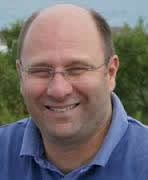 Dr Alistair Boxall is a professor in Environmental Science at the University of York, UK. Alistair’s research focuses on understanding emerging and future ecological and health risks posed by chemical contaminants in the natural environment. Alistair is a member of the Defra Advisory Hazardous Substances Advisory Committee and is Chair of the Pharmaceutical Advisory Group of the Society of Environmental Toxicology and Chemistry. He regularly advises national and international organisations on issues relating to chemical impacts on the environment and has published extensively on the topic of emerging contaminants (pharmaceuticals, nanomaterials and veterinary medicines) in the environment. Alistair is co-ordinator of the 3.5 M Euro project 'CAPACITIE' which is exploring methods for monitoring pollution in cities.
Dr Alistair Boxall is a professor in Environmental Science at the University of York, UK. Alistair’s research focuses on understanding emerging and future ecological and health risks posed by chemical contaminants in the natural environment. Alistair is a member of the Defra Advisory Hazardous Substances Advisory Committee and is Chair of the Pharmaceutical Advisory Group of the Society of Environmental Toxicology and Chemistry. He regularly advises national and international organisations on issues relating to chemical impacts on the environment and has published extensively on the topic of emerging contaminants (pharmaceuticals, nanomaterials and veterinary medicines) in the environment. Alistair is co-ordinator of the 3.5 M Euro project 'CAPACITIE' which is exploring methods for monitoring pollution in cities.
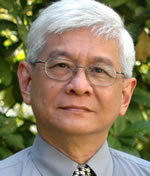 Dr Choon Nam Ong is a professor of the NUS Saw Swee Hock School of Public Health (Primary) and Director of NUS Environmental Research Institute (NERI). His main research interest is on Environmental Health Sciences, Identification of Biomarkers Using Metabolomics and Environmental Toxicology. More than 300 peer-reviewed academic articles were published with over 18,500 citations, and an H-index of 79. Through the course of his career, which spanned over three decades, Prof Ong has made significant contributions to the understanding of Xenobiotics and Carcinogenesis. In particular, he was able to highlight how Carcinogens can cause cellular and DNA damage, and what could be done to prevent that. He was awarded the AstraZeneca-American Toxicology Society award. His expertise has also been much sought after by the World Health Organisation. He has been invited to serve as a Consultant on many occasions and was involved in 12 of its Health Criteria publications. Prof Ong has been an Associate Editor of Environmental Research since 1995, and is currently an editorial board member of Carcinogenesis. Aside from his academic contributions, he was the Chairman of the International Expert Panel, advising the Ministry of Environment independently on the NEWater study. He was also a Board Member of the Singapore Public Utilities Board. For his contributions to Singapore, Prof Ong was awarded the President's National Day Award in 2004.
Dr Choon Nam Ong is a professor of the NUS Saw Swee Hock School of Public Health (Primary) and Director of NUS Environmental Research Institute (NERI). His main research interest is on Environmental Health Sciences, Identification of Biomarkers Using Metabolomics and Environmental Toxicology. More than 300 peer-reviewed academic articles were published with over 18,500 citations, and an H-index of 79. Through the course of his career, which spanned over three decades, Prof Ong has made significant contributions to the understanding of Xenobiotics and Carcinogenesis. In particular, he was able to highlight how Carcinogens can cause cellular and DNA damage, and what could be done to prevent that. He was awarded the AstraZeneca-American Toxicology Society award. His expertise has also been much sought after by the World Health Organisation. He has been invited to serve as a Consultant on many occasions and was involved in 12 of its Health Criteria publications. Prof Ong has been an Associate Editor of Environmental Research since 1995, and is currently an editorial board member of Carcinogenesis. Aside from his academic contributions, he was the Chairman of the International Expert Panel, advising the Ministry of Environment independently on the NEWater study. He was also a Board Member of the Singapore Public Utilities Board. For his contributions to Singapore, Prof Ong was awarded the President's National Day Award in 2004.
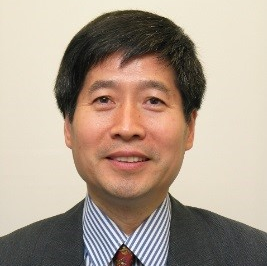 Dr Xiangdong Li is Chair Professor of Environmental Science and Technology at Department of Civil & Environmental Engineering, Associate Dean (Research) of Faculty of Construction and Environment, The Hong Kong Polytechnic University. He obtained his BSc in Earth Sciences and his MSc in Geochemistry from Nanjing University, and his PhD in Environmental Technology from Imperial College London. Prof. Li’s major research interests include regional pollution, urban environmental studies, and remediation of contaminated soils. He has published more than 190 papers in leading international journals, and is one of the highly cited researchers in Environment/Ecology of the Web of Science database. He was awarded the Outstanding Young Researcher (Oversea) Fund from the Natural Science Foundation of China (NSFC) in 2007. Professor Li is the past president (2011-2013) of the International Society of Environmental Geochemistry and Health (SEGH). He is currently an Associate Editor for Environmental Science and Technology (ES&T). Prof. Li is also an associate editor and editorial board member for several other international journals in related research fields.
Dr Xiangdong Li is Chair Professor of Environmental Science and Technology at Department of Civil & Environmental Engineering, Associate Dean (Research) of Faculty of Construction and Environment, The Hong Kong Polytechnic University. He obtained his BSc in Earth Sciences and his MSc in Geochemistry from Nanjing University, and his PhD in Environmental Technology from Imperial College London. Prof. Li’s major research interests include regional pollution, urban environmental studies, and remediation of contaminated soils. He has published more than 190 papers in leading international journals, and is one of the highly cited researchers in Environment/Ecology of the Web of Science database. He was awarded the Outstanding Young Researcher (Oversea) Fund from the Natural Science Foundation of China (NSFC) in 2007. Professor Li is the past president (2011-2013) of the International Society of Environmental Geochemistry and Health (SEGH). He is currently an Associate Editor for Environmental Science and Technology (ES&T). Prof. Li is also an associate editor and editorial board member for several other international journals in related research fields.
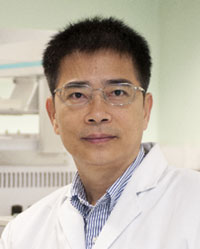 Dr Zongwei Cai is now the Chair Professor of Chemistry in the Department of Chemistry and Director of both State Key Laboratory of Environmental and Biological Analysis as well as Dioxin Laboratory, Hong Kong Baptist University. Prof. Cai received "Distinguished Young Scholar Award" (Oversea, Hong Kong and Macau) in 2003 and "Changjiang Scholar - Chair Professor" in 2013. He was entitled "Kwok Yat Wai Endowed Chair of Environmental and Biological Analysis" in 2015. The major research interest of Prof. Cai is method development and applications of chromatography coupled with mass spectrometry for trace analysis in complex systems such as environment, food and biological matrices, with focus on metabolomics and proteomics analysis in human health and diseases. Prof. Cai has published over 350 peer-refereed journals, and served as editors for Rapid Communication in Mass Spectrometry, Talanta, Journal of Pharmaceutical and Biomedical Analysis, Journal of Chinese Society of Mass Spectrometry (in Chinese), Journal of Chinese Clinical Medicine (in Chinese), Chromatography (in Chinese) and Environmental Chemistry (in Chinese). He is currently the editor of Rapid Communication in Mass Spectrometry.
Dr Zongwei Cai is now the Chair Professor of Chemistry in the Department of Chemistry and Director of both State Key Laboratory of Environmental and Biological Analysis as well as Dioxin Laboratory, Hong Kong Baptist University. Prof. Cai received "Distinguished Young Scholar Award" (Oversea, Hong Kong and Macau) in 2003 and "Changjiang Scholar - Chair Professor" in 2013. He was entitled "Kwok Yat Wai Endowed Chair of Environmental and Biological Analysis" in 2015. The major research interest of Prof. Cai is method development and applications of chromatography coupled with mass spectrometry for trace analysis in complex systems such as environment, food and biological matrices, with focus on metabolomics and proteomics analysis in human health and diseases. Prof. Cai has published over 350 peer-refereed journals, and served as editors for Rapid Communication in Mass Spectrometry, Talanta, Journal of Pharmaceutical and Biomedical Analysis, Journal of Chinese Society of Mass Spectrometry (in Chinese), Journal of Chinese Clinical Medicine (in Chinese), Chromatography (in Chinese) and Environmental Chemistry (in Chinese). He is currently the editor of Rapid Communication in Mass Spectrometry.
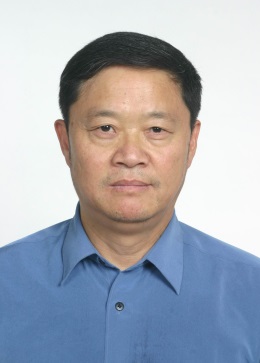 Dr Zijian Wang is a research professor at Research Center for Eco-Environmental Sciences, Chinese Academy of Sciences. His research interest includes development of innovative sampling technologies, and in vitro and in vivo bioassays, and water quality assessment based on chemical analysis, environmental risks, as well as aquatic toxicology of unregulated chemicals. He was the deputy director and director of State Key Laboratory of Environmental Aquatic Chemistry from 1992-2000. He is member of expertise group in the fields of resources and environment in the National High-Tech R&D Program since 2001 and in in the National Key Program for Water Pollution Control and Remediation. He is also members of several international associations, such as IAGH and members of editorial boards of several journals, such as China Acta of Environmental Science, China Journal of Environmental Chemistry, Wetland Research, Environmental Science and Health (A) and Water Quality, Exposure and Health. In 2006, he created the Asian Journal of Ecotoxicology and acts as the Chief Editor. He has authored and/or co-authored more than 400 peer reviewed journal papers. The research work has been awarded the 2nd National Prize for Invention, 2nd National Prize for Natural Science, as well as 2nd National Prize for Technology Improvement.
Dr Zijian Wang is a research professor at Research Center for Eco-Environmental Sciences, Chinese Academy of Sciences. His research interest includes development of innovative sampling technologies, and in vitro and in vivo bioassays, and water quality assessment based on chemical analysis, environmental risks, as well as aquatic toxicology of unregulated chemicals. He was the deputy director and director of State Key Laboratory of Environmental Aquatic Chemistry from 1992-2000. He is member of expertise group in the fields of resources and environment in the National High-Tech R&D Program since 2001 and in in the National Key Program for Water Pollution Control and Remediation. He is also members of several international associations, such as IAGH and members of editorial boards of several journals, such as China Acta of Environmental Science, China Journal of Environmental Chemistry, Wetland Research, Environmental Science and Health (A) and Water Quality, Exposure and Health. In 2006, he created the Asian Journal of Ecotoxicology and acts as the Chief Editor. He has authored and/or co-authored more than 400 peer reviewed journal papers. The research work has been awarded the 2nd National Prize for Invention, 2nd National Prize for Natural Science, as well as 2nd National Prize for Technology Improvement.
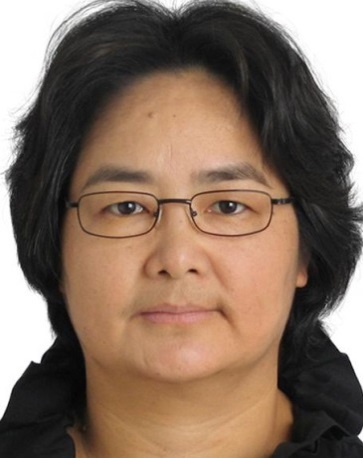 Dr Jianying Hu is a professor of Urban and Environmental Science at the Peking University, China. She received her Ph.D. degree in Hiroshima University (Japan) in 1992. She mainly focused on the occurrence and fate of environmental contaminants, toxicology mainly for endocrine disrupting chemicals (EDCs), and health/ecological risk assessment. For more than 20 years, Dr. HU has published over 200 manuscripts, book or book chapters. She received The Seventy Chinese Young Female Scientists Award in 2011, SETAC “MENZIE Environmental Educational Award in 2011, and the China's State Natural Science Award National Science Award in 2015.
Dr Jianying Hu is a professor of Urban and Environmental Science at the Peking University, China. She received her Ph.D. degree in Hiroshima University (Japan) in 1992. She mainly focused on the occurrence and fate of environmental contaminants, toxicology mainly for endocrine disrupting chemicals (EDCs), and health/ecological risk assessment. For more than 20 years, Dr. HU has published over 200 manuscripts, book or book chapters. She received The Seventy Chinese Young Female Scientists Award in 2011, SETAC “MENZIE Environmental Educational Award in 2011, and the China's State Natural Science Award National Science Award in 2015.
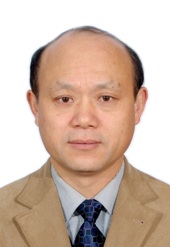 Dr Weiping Liu is a professor of Zhejiang University. He is currently the director of the Environmental Health Research Institute of the School of Environment and Resources of Zhejiang University and in charge of the first-level discipline of environmental science and engineering. His research focuses on environmental chemistry and ecological effects of chiral pollutants. He is the winner of the National Outstanding Youth Fund, the leader of the “Innovation Team” of the Ministry of Education, the “Qianjiang Scholar” of Zhejiang Province and the “Career of Scholars” of Zhejiang University. He is also a member of the Environmental Chemistry Committee of the Chinese Chemical Society, a member of the Water Treatment Chemistry Committee, a member of the Environmental Chemistry Committee of the Chinese Society of Environmental Sciences, a member of the POPs Professional Committee, a member of the Zhejiang Environmental Science Society and the Zhejiang Provincial Ecological Society; international purity and application.
Dr Weiping Liu is a professor of Zhejiang University. He is currently the director of the Environmental Health Research Institute of the School of Environment and Resources of Zhejiang University and in charge of the first-level discipline of environmental science and engineering. His research focuses on environmental chemistry and ecological effects of chiral pollutants. He is the winner of the National Outstanding Youth Fund, the leader of the “Innovation Team” of the Ministry of Education, the “Qianjiang Scholar” of Zhejiang Province and the “Career of Scholars” of Zhejiang University. He is also a member of the Environmental Chemistry Committee of the Chinese Chemical Society, a member of the Water Treatment Chemistry Committee, a member of the Environmental Chemistry Committee of the Chinese Society of Environmental Sciences, a member of the POPs Professional Committee, a member of the Zhejiang Environmental Science Society and the Zhejiang Provincial Ecological Society; international purity and application.
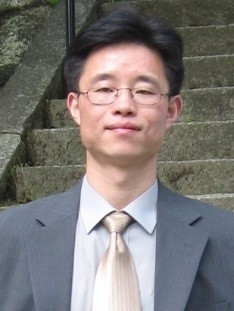 Dr Zhimin Qiang is a professor in the research centre for eco-environmental sciences in the Chinese Academy of Sciences. He is also the director of CAS Key Laboratory of Drinking Water Science and Technology. His research focuses on water advanced treatment, disinfection, and pipeline leakage control. Dr Qiang serves as Associate Editor of Journal of Hazardous, Toxic & Radioactive Waste. He was awarded Advanced Individual for Scientific and Technological Innovations (2013) by Ministry of Housing and Urban-Rural Development of China, East Asia Regional Project Innovation Honor Award (Applied Research 2014) by International Water Association, and Beijing Science and Technology Award (2015).
Dr Zhimin Qiang is a professor in the research centre for eco-environmental sciences in the Chinese Academy of Sciences. He is also the director of CAS Key Laboratory of Drinking Water Science and Technology. His research focuses on water advanced treatment, disinfection, and pipeline leakage control. Dr Qiang serves as Associate Editor of Journal of Hazardous, Toxic & Radioactive Waste. He was awarded Advanced Individual for Scientific and Technological Innovations (2013) by Ministry of Housing and Urban-Rural Development of China, East Asia Regional Project Innovation Honor Award (Applied Research 2014) by International Water Association, and Beijing Science and Technology Award (2015).
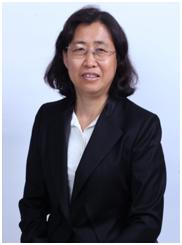 Dr Chun Hu is a distinguished professor at Guangzhou University. She is also the director of Environmental Research Institute at Greater Bay, Guangzhou University. Her research focuses on the topics related to Advanced Oxidation Technologies for application in drinking water and wastewater treatment. She aims to develop novel environmental-purification materials for eliminating different pollutants and pathogenic microorganism, and investigate the transformation and fate of pollutants during the water treatment in order to develop highly efficient technology for water purification. She has published more than 150 SCI articles with citation of more than 3000.
Dr Chun Hu is a distinguished professor at Guangzhou University. She is also the director of Environmental Research Institute at Greater Bay, Guangzhou University. Her research focuses on the topics related to Advanced Oxidation Technologies for application in drinking water and wastewater treatment. She aims to develop novel environmental-purification materials for eliminating different pollutants and pathogenic microorganism, and investigate the transformation and fate of pollutants during the water treatment in order to develop highly efficient technology for water purification. She has published more than 150 SCI articles with citation of more than 3000.
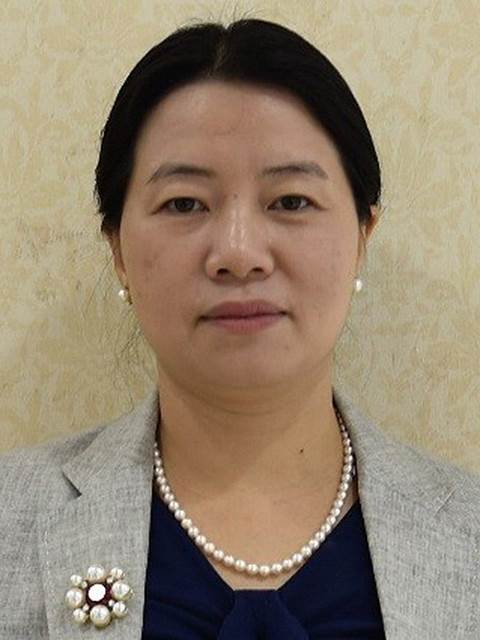 Dr Zhang Lin is a professor in School of Environment and Energy, South China University of Technology. She obtained her BSc. from Xiameng University in 1993, and her Ph.D from Institute of Chemistry, Chinese Academy of Sciences (CAS) in 1999. She joined CAS in 2004, and received National Distinguished Young Scholar award in 2011, the national candidate under the "Ten thousand plan" - National high-level talents special support plan in 2016. Her research group focuses on the crystal growth kinetics of nanoparticles and the relevant environmental applications. More specifically, she is interested in recycling of heavy metal from nanowaste, especially from industrial sludge or from nano-adsorbents after usage. She is also interested in studying the bio-mineralization processes of heavy metals by indigenous microorganism, the structure, properties, and transformation of biogenic nanoparticles. She is now an associate editor of Environmental Science: Nano.
Dr Zhang Lin is a professor in School of Environment and Energy, South China University of Technology. She obtained her BSc. from Xiameng University in 1993, and her Ph.D from Institute of Chemistry, Chinese Academy of Sciences (CAS) in 1999. She joined CAS in 2004, and received National Distinguished Young Scholar award in 2011, the national candidate under the "Ten thousand plan" - National high-level talents special support plan in 2016. Her research group focuses on the crystal growth kinetics of nanoparticles and the relevant environmental applications. More specifically, she is interested in recycling of heavy metal from nanowaste, especially from industrial sludge or from nano-adsorbents after usage. She is also interested in studying the bio-mineralization processes of heavy metals by indigenous microorganism, the structure, properties, and transformation of biogenic nanoparticles. She is now an associate editor of Environmental Science: Nano.
研讨会地点: 广州大学城华南师范大学国际会议中心
广州大学城
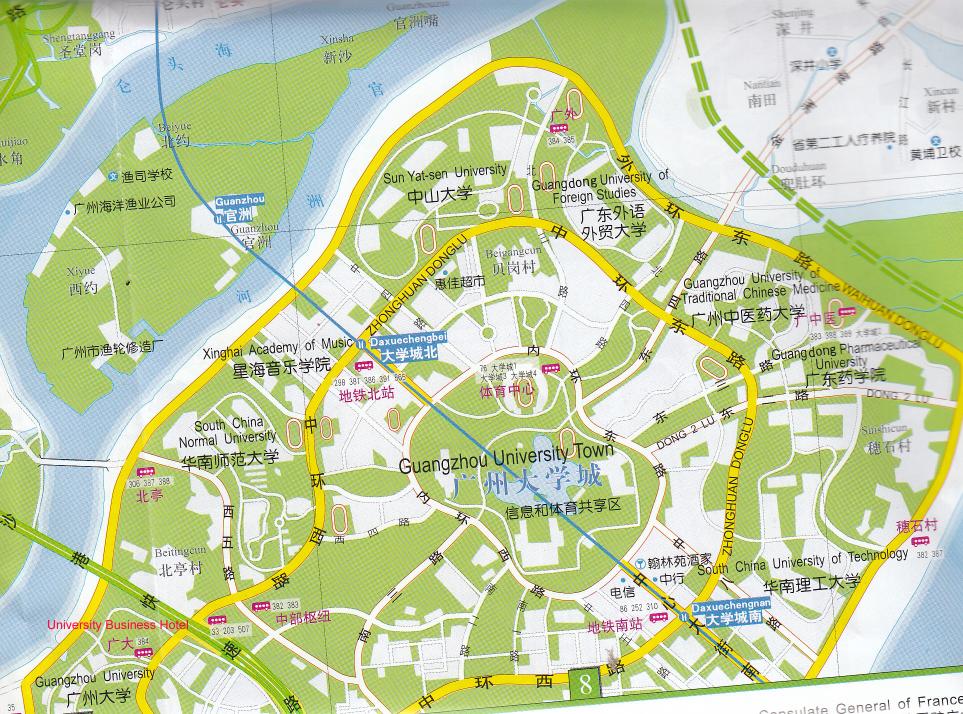
华南师范大学大学城校区
